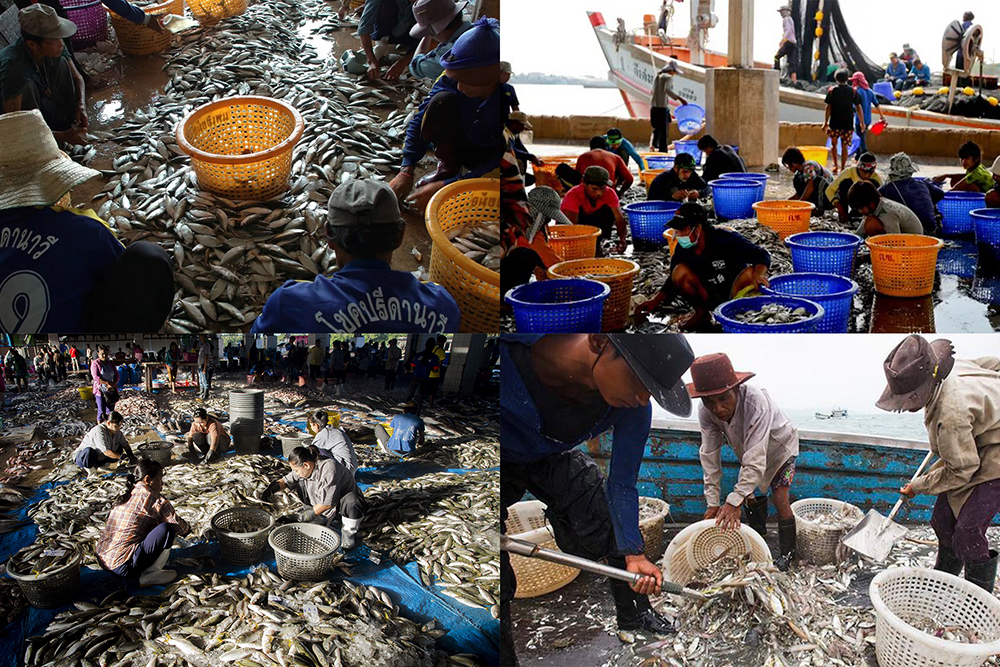CNI News
16 Sept 2022
Myanmar fishing workers in Thailand have been temporarily laid off alternatively from two weeks to a few months without being paid since June, labour activists for Myanmar workers told the CNI.
Fishing boats owners laid off Myanmar workers temporarily without paying their salaries, citing bad weather conditions and rising oil prices but complaints have not been filed to authorities.
Labour activist U Min Oo of the Foundation for Education and Development told the CNI, “We will have file complaints to authorities after making their lists. Employers are responsible for workers even when operations are suspended. We can file complaints to departments responsible for protection of workers and port management authorities. However, fishing worker have not filed complaints to them. Therefore, it is difficult for labour activists because no one file complaints to authorities. They are worried about being permanently sacked. Fishing workers do not have skills for other jobs.”
Laid off temporarily without being paid, fishing workers have to take odd jobs near ports or some of them move to other places.
When employers suspend their businesses temporarily, they are required to pay salaries to workers, labour activist Ko Thar Gyi told the CNI.
Myanmar fishing workers in Thailand. (CNN)
He said, “The employers have not stopped their operations permanently and asked their workers to work in rotation. If the workers came here under the MOU, they can raise questions with their agencies. Moreover, the employers are responsible to pay full salaries to the workers under the labour law even if operations are temporarily suspended.”
The majority of fishing workers in Thailand are those who came to work in Thailand legally. There are hundreds of Myanmar fishing workers in Thailand.
Compared to Myanmar factory workers in Thailand, those in the fishing industry are more vulnerable to human rights abuses, Executive Director U Htoo Chit of the FED told the CNI.
He said, “If factory workers have problems, it is easier for them to file complaints to authorities. In the past, workers in the fishing industry were subject to human rights abuses and human trafficking. Such cases can still be seen in some areas. It is more dangerous for Myanmar fishing workers. The main problem is that they do not file complaints to authorities. They should be able to demand their rights. Some workers are worried about losing their jobs or retaliation by employers. So, they avoid direct confrontation with their employers.”
It is difficult for some fishing workers to make complaints with authorities because they were forced to surrender their job contracts to their employers.
There are about 50,000 Myanmar nationals working legally in the fishing industry in Thailand.




